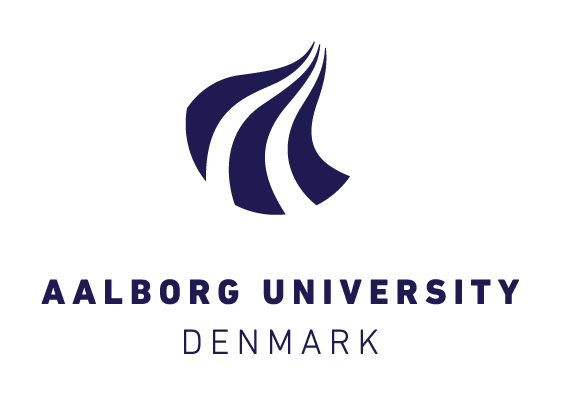Aalborg University (AAU)
Overall Description:
The Aalborg University (AAU) is known for its Problem Based Learning where students work in teams on a large assignment, often collaborating with an industrial partner. This study method is also called “The Aalborg Model for Problem Based Learning”. The method is highly recognised internationally, and the university is host to a successful UNESCO chair in Problem Based Learning in Engineering Education and a Centre for PBL and Sustainability approved by UNESCO. AAU is divided in 3 campuses (Aalborg, Esbjerg and Copenhagen) and offers education and research within the fields of natural sciences, social sciences, humanities, technical and health science and currently consolidates and further develops its profile as a dynamic and innovative research and educational institution. The university is characterized by combining a keen engagement in local, regional, and national issues with an active commitment to international collaboration. AAU awards Bachelors, Master's, Ph.D. and Doctoral degrees in various fields within the different programs with more than 19.000 students (13% international) enrolled.
WORLD-CLASS LABORATORIES: The laboratories at Aalborg University are of the highest standard, and they play an important role in teaching. Students are able to work under the best laboratory conditions with access to the latest technology. RATED FOR EXELLENCE: Aalborg University was rated for excellence in the QS-ranking system and has received five stars certifying the world-class position of the university based on cutting-edge facilities and internationally renowned research and teaching faculty. Within Engineering and Technology, Aalborg University ranked as number 76 in 2015/2016 and as number 4 in the field of engineering educations (US News World Ranking). Moreover, according to Times Higher Education, Aalborg University is no. 25 in the Top 100 of universities established within the past 50 years and ranked as the fourth best in the world within engineering programs (and number 1 in Europe) in the MIT 2018 report.
The Section for Sustainable Biotechnology (SSB)
is one of the five sections of the Department of Chemistry and Bioscience of AAU. SSB was formed in 2008 out of the merging of two world-known research groups headed by Professors Lene Lange and Birgitte Ahring, respectively. It combines research within biotechnology, clean technologies, and renewable energy production to create results with high international impact, together with leading research institutions all over the world. The SSB platform consists of broad biotechnological disciplines – from microbial biodiversity analyses and advanced genetic engineering to process oriented biotechnology with the core research lying within the discovery and process field of modern biotechnology.
Research in SSB deals with development of Biorefineries for the valorization of waste streams by means of enzymes and microorganisms for biotechnological purposes, including production of feed and food ingredients, 2nd generation bioenergy technologies, new technologies for renewable production of green chemicals, microbiological and molecular biological optimisation of biofuel production, screening for new enzymes and microorganisms, development of biorefineries for conversion of biomass to industrial ingredients, as well as the study of biodiversity in technical and natural ecosystems, relevant to biomass production and conversion. Besides, mixed microbial culture technologies are under development for the degradation of plastics (PE, PET, PP, etc). Moreover, an agreement with the chemical company FMC has been established to study the degradation of their pesticides and herbicides in the soil.
AAU offers also an Oil and Gas Technology Master
(Section of Chemical Engineering): in this international Master course (taught in English), students are trained in chemical engineering and focus on the processes required to extract oil and gas from the underground. The education gives a thorough insight into the entire offshore sector, and dealing with topics such as the sub-industries' production of platforms, equipment and services as well as the actual extraction of oil and gas. The Oil and gas extraction requires (in addition to chemistry) knowledge of the underground and of technologies that can be used in extreme conditions. Geology, process technology, fluid mechanics and thermodynamics are therefore also included as essential elements of the education. As students increase their theoretical and experimental level considerably, they get a basic knowledge of the offshore industry: how it is organized and knowledge of key processes and equipment. They also learn to develop mathematical models to describe and simulate the current processes and to be able to use relevant modeling tools for planning and optimization.
Main topics are:
• Offshore Processes
• Reservoir engineering
• Development of catalysts for limiting air pollution
• Development of computer models of the processes at an oil refinery
• Biogas production
• Consulting in the offshore industry
• Process technology and safety
• Production of offshore installations
• Equipment and service
Center for Microbial communities:
The Environmental Biotechnology (EB) Group at Aalborg University is part of Center for Microbial Communities that studies microbial activity and diversity in complex microbial communities within environmental, technical and medical systems. The research is based on fundamental environmental microbiology, microbial ecology, molecular microbiology and systems microbiology. Important topics include biological wastewater treatment, odour removal in biofilters, biofilm structure and function (biofouling, medical biofilms, exopolymers and adhesion), biodegradation of environmental pollutants, and detection, fate and physiology of pathogens.
Around 30 persons are actively working in the EB Group sharing methodologies and equipment. There is an extensive collaboration with the groups involved in genomics, transcriptomics, proteomics and metabolomics in the Section of Biotechnology. The EB Group has an extensive national and international collaboration. The Group is involved in several research projects granted from the Danish Technical Research Council (FTP, FNU), the Danish Council for Strategic Research, Innovation Fund Denmark, private foundations, different companies, Aalborg University, and other sources.
LINKS:
OUR STAFF
Contact person:
Cristiano Varrone, PhD
Associate Professor at the Section for Sustainable Biotechnology
Email: cva@bio.aau.dk
Section for Sustainable Biotechnology. A.C. Meyers Vænge 15. 2450 Copenhagen (DK)
Phone: +4599403572
Other participants:
Jeppe Lund Nielse, PhD
Professor at the Center for Microbial communities
Email: jln@bio.aau.dk
Marco Maschietti, PhD
Associate Professor at the Section of Chemical Engineering
Email: marco@bio.aau.dk
Jens Muff, PhD
Associate Professor and Leader of the Section of Chemical Engineering
Email: jm@bio.aau.dk



